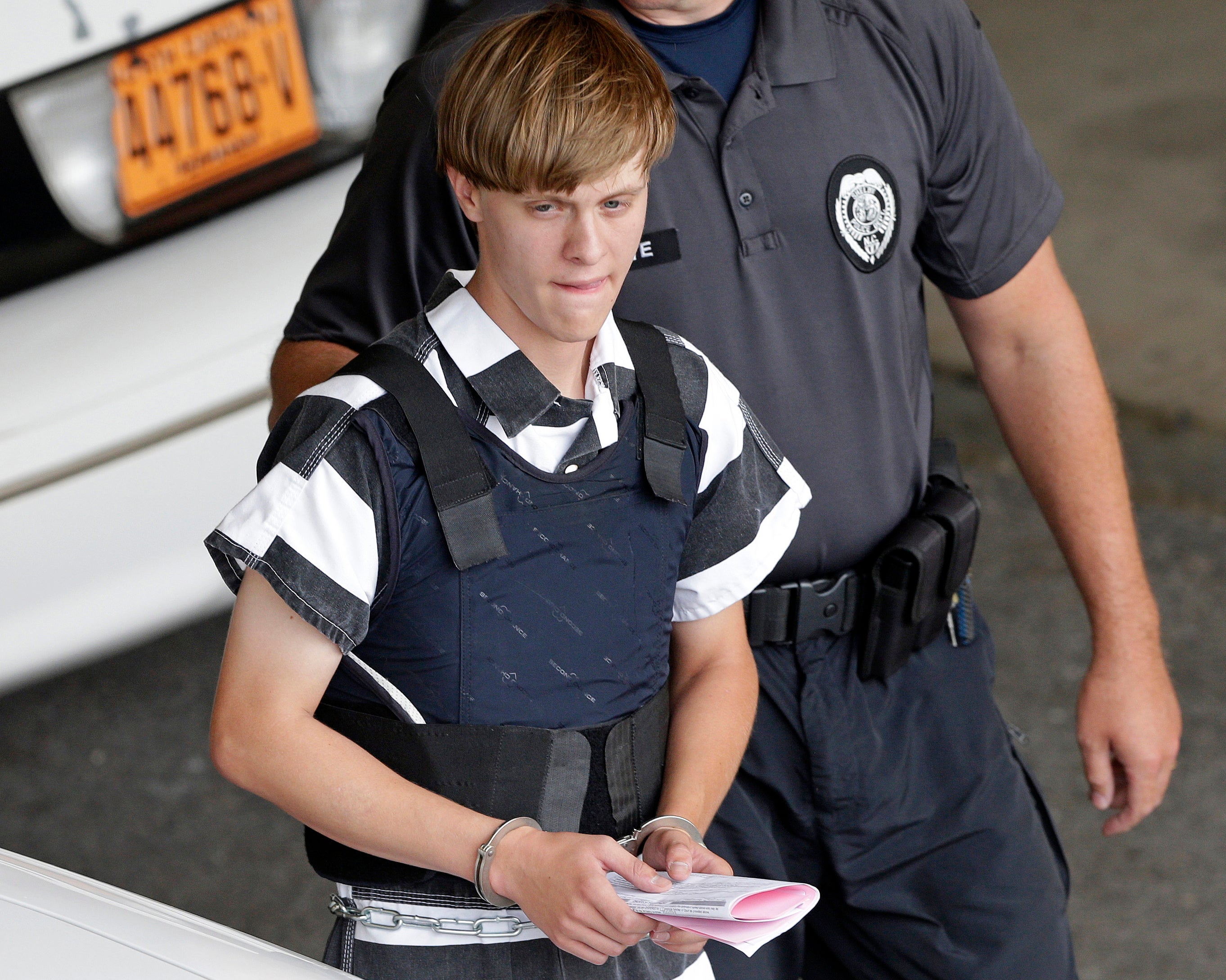Government: Dylann Roof's death sentence should stand
Attorneys for the federal government have opposed Dylann Roof’s request for a new appellate hearing, arguing that the South Carolina man was properly convicted and sentenced for the 2015 racist slayings of nine members of a Black congregation

Your support helps us to tell the story
From reproductive rights to climate change to Big Tech, The Independent is on the ground when the story is developing. Whether it's investigating the financials of Elon Musk's pro-Trump PAC or producing our latest documentary, 'The A Word', which shines a light on the American women fighting for reproductive rights, we know how important it is to parse out the facts from the messaging.
At such a critical moment in US history, we need reporters on the ground. Your donation allows us to keep sending journalists to speak to both sides of the story.
The Independent is trusted by Americans across the entire political spectrum. And unlike many other quality news outlets, we choose not to lock Americans out of our reporting and analysis with paywalls. We believe quality journalism should be available to everyone, paid for by those who can afford it.
Your support makes all the difference.Attorneys for the federal government have opposed Dylann Roof s request for a new appellate hearing, arguing that the South Carolina man was properly convicted and sentenced for the 2015 racist slayings of nine members of a Black congregation.
In court documents filed Thursday, federal prosecutors argued that a three-judge panel of the 4th U.S. Circuit Court of Appeals correctly ruled last month that the government had proven its case against Roof, despite his protestations on several points.
“The Court’s rulings were correct, and there is no reason to revisit them,” federal prosecutors wrote.
In 2017, Roof became the first person in the U.S. sentenced to death for a federal hate crime. Authorities have said Roof opened fire during the closing prayer of a Bible study at Mother Emanuel AME Church in Charleston raining down dozens of bullets on those assembled. He was 21 at the time.
In his appeal, Roof’s attorneys argued that he was wrongly allowed to represent himself during sentencing, a critical phase of his trial. Roof successfully prevented jurors from hearing evidence about his mental health, “under the delusion,” his attorneys wrote, that “he would be rescued from prison by white-nationalists — but only, bizarrely, if he kept his mental-impairments out of the public record.”
The 4th Circuit panel initially found that the trial judge did not commit an error when he found Roof was competent, unanimously upholding his conviction in August and issuing a scathing rebuke of Roof’s crimes.
“No cold record or careful parsing of statutes and precedents can capture the full horror of what Roof did,” the judges wrote. “His crimes qualify him for the harshest penalty that a just society can impose.”
Earlier this month, Roof filed a request that the full court consider his appeal, arguing that the judges' decision interpreted too broadly the Commerce Clause of the U.S. Constitution, which authorizes Congress to regulate commerce among the states.
By accepting the government’s argument that a combination of factors including Roof’s use of the internet to post his views and research the church constituted “interstate commerce,” Roof’s lawyers wrote, the panel’s decision amounted to “an amorphous, unprecedented, and all-encompassing standard for federal Commerce Clause jurisdiction over local crime, effectively nullifying states’ traditional police power in that arena.”
In their response, government attorneys wrote that the appellate court “issued a fact-bound ruling that Roof’s use of the internet both to select Mother Emanuel as his target and magnify his offense by posting his racist, violent call to action only hours before the attack” fulfilled the Commerce Clause connection.
Should the court grant Roof a full hearing, it remains to be seen who exactly would hear the case. All of the judges in the 4th Circuit, which covers South Carolina, have recused themselves; one of their own, Judge Jay Richardson, prosecuted Roof’s case as an assistant U.S. attorney. The panel that heard arguments in May and issued August’s ruling was composed of judges from several other appellate circuits.
Along with his request for a full-court hearing, Roof also asked that either U.S. Supreme Court Chief Justice John Roberts designate a panel to consider the rehearing petition or the 4th Circuit’s chief judge designate other judges from within that district to make up such a panel.
If unsuccessful in his direct appeal, Roof could file what’s known as a 2255 appeal, or a request that the trial court review the constitutionality of his conviction and sentence. He could also petition the U.S. Supreme Court or seek a presidential pardon.
___
Meg Kinnard can be reached at http://twitter.com/MegKinnardAP.